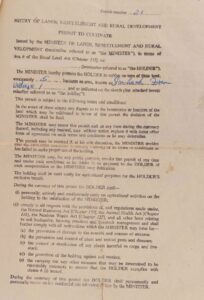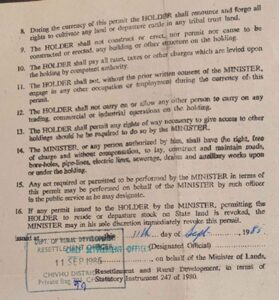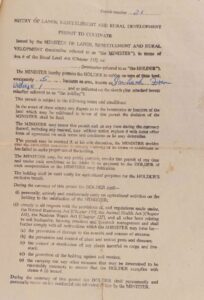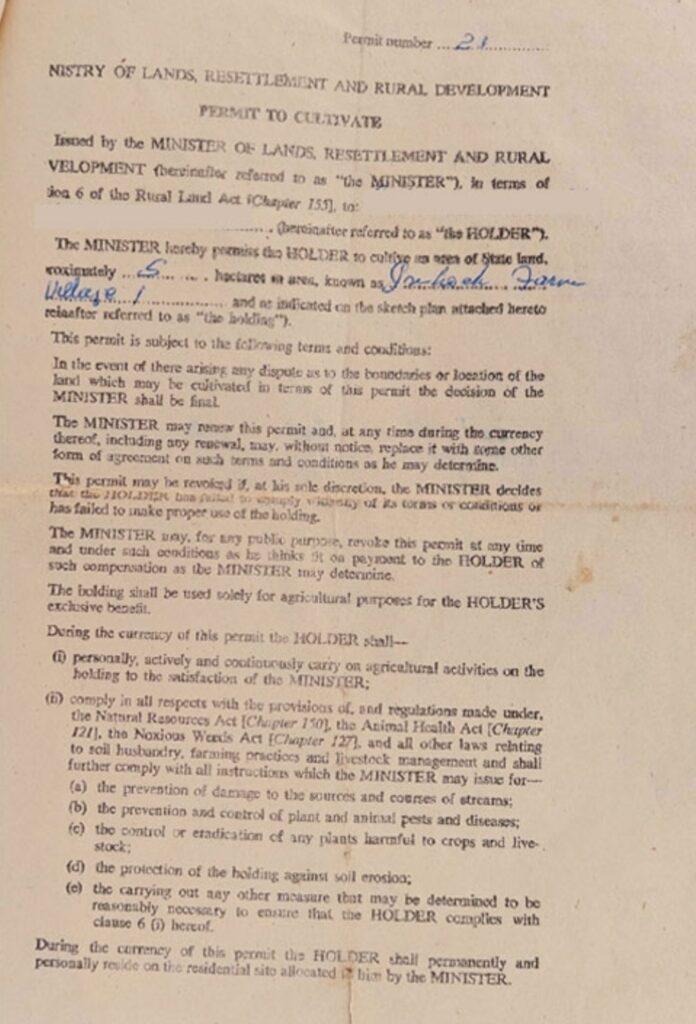Manhize villagers cry foul over land grab
NATHAN GUMA
GOVERNMENT-INDUCED relocations to make way for a US$1.5 billion Chinese-owned steel project are exacerbating food insecurity among Mushenjere villagers in Manhize, Mvuma, in the Midlands province.
The Chinese steelmaker, Dinson Iron and Steel Company (Disco), has taken over arable land, affecting scores of households amidst an El Niño-induced drought that has left millions facing severe food insecurity.
On 23 May, Local Government minister Daniel Garwe said the country needed US$3.3 billion, up from the initial US$2.2 billion announced in April by President Emmerson Mnangagwa to cater for 60% of the country’s population that will be food insecure until the next harvest in March.
The situation could be worse for those families who find themselves at the mercy of displacement politics and forced relocation by companies such as Disco.
Disco, a local subsidiary of Chinese firm Tsingshan, has been touted as Africa’s largest integrated steel project.
Its operations in Manhize have however condemned villagers to abject poverty and hunger.
Some of the affected community members are living under intense fear as suspected state security agents are allegedly hounding them for protesting against the company.
The involvement of these security agents who operate in plainclothes and drive cars similar to those used by the military and intelligence, betrays the deep links between the government and Chinese investors in Zimbabwe.
Chinese investors have an obligation to protect, promote, respect and fulfil the rights provided for in the constitution whilst conducting their operations in the country, according to the Zimbabwe Environmental Law Association (Zela),
Since 2021, more than 101 families from Manhize’s Mushenjere Village have lost their land to Disco’s operations, with once self-sufficient villagers now unable to produce food for their households, as they no longer have access to their allocated land.
Investigations by The NewsHawks have shown that displacements have worsened food insecurity among the villagers. Over the years, Disco has been grabbing arable land once used for subsistence by the villagers.
The company is erecting a wall around farmland and pastures in the area, further isolating families in Mushenjere Village from the traditional sources of livelihood.
The investigation also revealed that an estimated 138 families from Kwaedza Village are facing a similar predicament as Disco has installed land survey pegs in the area.
The villagers are originally from Rukovere, Mahusvu, Msasa and Unyetu villages in Chikomba district, Mashonaland East province, where they survived as subsistence farmers.
In 1984, they were allocated land on farms purchased by the government under the “minda mirefu” (“large fields”) land reform programme initiated soon after Independence in 1980.
The NewsHawks saw the permits which were issued 40 years ago.




Climate crisis, stalking hunger

Farmers who spoke to The NewsHawks said food production has largely diminished due to lack of farmland, exposing them to acute food insecurity, which has been worsened by the climate crisis.
The probability of precipitation for Mvuma is also decreasing due to the El Niño-induced weather conditions, which have seen the country receiving record low rainfall levels, making the villagers more vulnerable to food insecurity.
Probability of Precipitation in Summer for Mvuma, Zimbabwe: 2017-24
In Mvuma, where Manhize lies, the chance of a wet day throughout the summer is rapidly decreasing, starting the season at 47% and ending at 33%, decreasing produce and causing food insecurity.




Comments are closed.